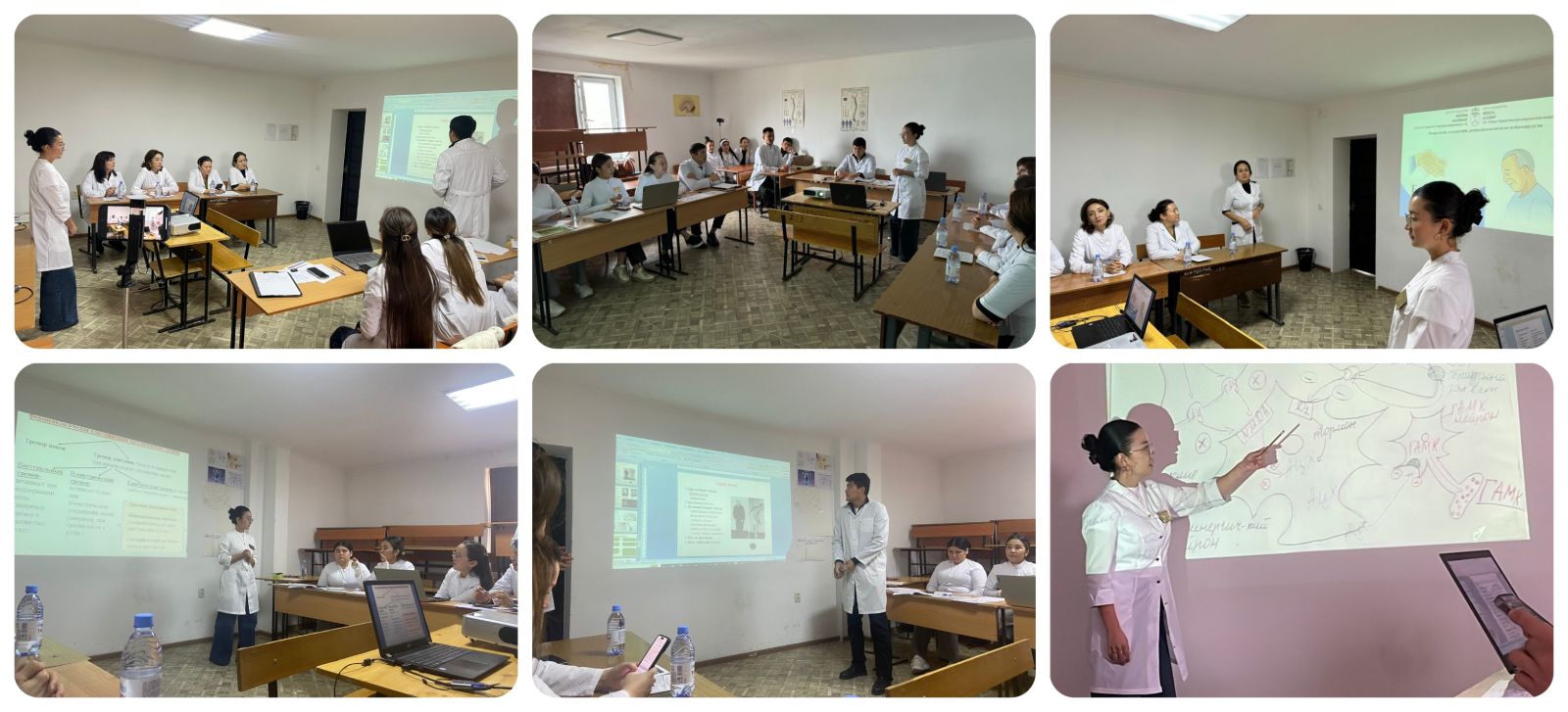Clinical thinking without borders: How multilingualism helps future doctors

As part of the 6th-year students’ education in the «General Medical Practice» program, the IGPDK-07-24 group held a lesson using the PBL (Problem-Based Learning) method within the discipline «Neurology in General Medical Practice». The topic of the session focused on neurodegenerative diseases, including Parkinson’s disease and Alzheimer’s disease.
The unique feature of this lesson was its multilingual format. The discussions involved active use of Kazakh, Russian, and English languages. Students analyzed clinical cases, conducted differential diagnoses, and proposed modern approaches to the treatment and care of patients.
According to G.A. Mustapayeva, PhD in Medicine and acting associate professor, the lesson not only helped develop clinical thinking but also strengthened students’ language competencies. Group discussions were conducted in Kazakh, questions to the instructor were asked in Russian, and key terms and conclusions were presented in English.
The session was also attended by associate professors S.K. Erkebayeva and T.V. Polukchi, along with assistant G.E. Tolebayeva. “Such lessons help future doctors navigate professional terminology in three languages, which is particularly important in today’s medical practice,” the instructors emphasized.
The results demonstrated that the students are prepared to apply theoretical knowledge in practice. In the future, more attention will be given to the pathogenesis of diseases, new treatment methods, and expanding the students’
 587 views
587 views
